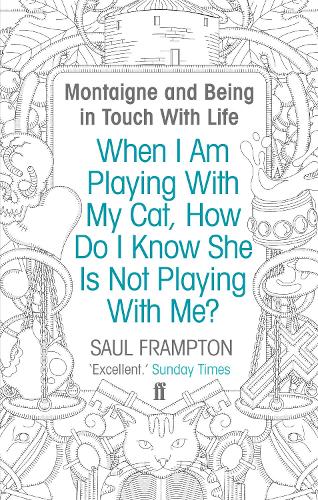
When I Am Playing With My Cat, How Do I Know She Is Not Playing With Me: Montaigne and Being in Touch With Life
(Paperback, Main)
Publishing Details
When I Am Playing With My Cat, How Do I Know She Is Not Playing With Me: Montaigne and Being in Touch With Life
By (Author) Saul Frampton
Faber & Faber
Faber & Faber
1st March 2012
5th January 2012
Main
United Kingdom
Classifications
Tertiary Education
Non Fiction
844.3
Physical Properties
Paperback
320
Width 127mm, Height 199mm, Spine 12mm
254g
Description
In the year 1570, at the age of thirty-seven, Michel de Montaigne gave up his job as a magistrate and retired to his chateau to brood on his own private grief - the deaths of his best friends, his father, his brother, and most recently his first-born child. But finding his mind agitated rather than settled by this idleness, Montaigne began to write, giving birth to the Essays - short prose explorations of an amazing variety of topics. And gradually, over the course of his writing Montaigne began to turn his back upon his stoical pessimism, and engage in a new philosophy of life, in which living is to be embraced in all its sensory, exuberant vitality - the smell of his doublet, the pleasures of friendship, the intelligence of his cat and the flavour of his wine.
Saul Frampton offers a celebration of perhaps the most joyful and yet profound of all Renaissance writers, whose work went on to have a huge impact on Shakespeare, and whose writings offer a user's guide to existence even to the present day.
Reviews
"Excellent . . . Montaigne celebrates life in all its glorious messiness, while reminding us that nothing matters more than human connectedness and kindness to people and animals. An endlessly digressive writer, Montaigne is as much raconteur as moralist, and his book offers some of the best after-dinner conversation in the world . . . You can never be sure what this French humanist will say next . . . Frampton approaches Montaigne from unexpected tangents . . . Where [he] excels is in his sharply intelligent and sharply phrased insights . . . [An] elegant work."
--Michael Dirda, "The Washington Post "
"Winning . . . Perceptive . . . Frampton tells the story of how history, culture, and personal genius conspired to create a new literary genre--and a literary master for the ages . . . Although they were first published more than four centuries ago, Montaigne's essays can seem as topical as the morning newspaper. As more than one admirer has discovered, Montaigne's essentia
Author Bio
Saul Frampton studied English and Philosophy at the University of East Anglia, wrote a doctorate on Renaissance literature at Oxford and was a Research Fellow at Cambridge. He lives in Hove, on the Sussex coast.
